Vitamin C for Female Fertility and IVF
When you think of Vitamin C, you probably think of immune support or warding off a cold (it works…right?!). But did you know that this popular vitamin can also play a hugely important role in supporting female fertility and IVF outcomes? In this post, we’re laying down why vitamin C is a fertility must-have, and how it might just improve your chances of conception.

What is Vitamin C?
Vitamin C, also known as ascorbic acid for the label readers, is a water-soluble vitamin that’s crucial for multiple bodily functions. It’s best known for its powerful antioxidant properties, which help protect cells from oxidative stress. Oxidative stress occurs when there’s an imbalance between free radicals and antioxidants in the body, leading to cell damage.
For fertility, oxidative stress can be especially harmful because it affects the health of your eggs and reproductive organs - and ahem, just a reminder that your egg cells have been around since before you were born, so they need the ultimate in nourishment and protection.
Unlike some other antioxidants, vitamin C doesn’t just protect cells - it’s also involved in collagen synthesis, which helps maintain the structural integrity of tissues, including those in the reproductive system. This makes it a vital nutrient not only for overall health but also for reproductive well-being - and it was absolutely a no-brainer that we had to include vitamin C in OvaGold, our targeted antioxidant formula for reproductive and preconception health.

How Does Vitamin C Support Female Fertility?
Oxidative stress can have a major impact on female fertility, contributing to conditions like diminished ovarian reserve and the age-related decline in egg quality (Agarwal et al., 2005). vitamin C helps to neutralise the free radicals that cause oxidative damage in the ovaries, eggs, and surrounding tissues.
Here are some of the ways vitamin C may support female fertility.
- Egg Protection: By reducing oxidative stress, vitamin C helps protect the quality of your eggs, which is particularly important as you age. Healthier eggs mean a better chance of successful conception, whether naturally or through IVF. Higher levels of vitamin C in your follicular fluid (fluid around your eggs) may improve egg and embryo quality (Sharami et al., 2017).
- Reproductive System Function and Hormones: Vitamin C has been shown to support healthy hormone levels, which in turn means that vitamin C is essential for maintaining regular ovulation and progesterone production (Mumford et al., 2016).
In particular, vitamin C may support optimal progesterone levels, which play a key role in maintaining pregnancy and promoting a healthy uterine lining (Henmi et al., 2003).
Can Vitamin C Improve IVF Success?
If you’re undergoing IVF, you know how important it is to do everything you can to support your health. With so much out of our control when it comes to IVF, and so much on the line, optimising our health and specifically our egg quality is one way to feel empowered in the process.
Research suggests that vitamin C can play a role in improving IVF outcomes by enhancing the quality of eggs and embryos (Sharami et al., 2017).
This is because vitamin C can be found in the follicular fluid (the fluid surrounding your eggs while they develop) and supports the development of healthy follicles, where eggs mature before being released for fertilisation.
In one study, women undergoing IVF who were supplemented with antioxidants, including vitamin C, showed improved embryo quality and higher pregnancy rates (Ruder et al., 2008). By reducing oxidative stress in the ovaries and improving overall egg health, vitamin C may help increase your chances of success with IVF.
Yep… we’ll take that!
To enhance vitamin C levels in the follicular fluid and make sure your eggs have every opportunity to marinate in quality antioxidants before conception, we’ve included vitamin C (and its friends like vitamin E and alpha lipoic acid) in your daily dose of OvaGold.

The Role of Vitamin C in Egg Quality
When you are trying to conceive, egg quality is critical - despite the huge focus on egg count and ovarian reserve, if you have been through IVF you’ll also deeply understand that it is so important to create a high quality embryo.
Unfortunately, as we age, oxidative stress begins to take a toll on our eggs, leading to lower quality and reduced fertility potential. Vitamin C helps combat this by neutralising free radicals and protecting your eggs from oxidative damage.
Studies have shown that Vitamin C supplementation can improve the quality of eggs in women with fertility issues, particularly those dealing with oxidative stress-related conditions like PCOS (Polycystic Ovary Syndrome) (Henmi et al., 2003). By keeping your eggs healthier, Vitamin C may give you a better chance of conception and a healthy pregnancy.
What Foods Are High in Vitamin C?
When it comes to getting vitamin C in your diet, you’ve got plenty of options - isn’t that nice to hear? You don’t need to search for some exotic weird fermented thing for $100 per kilogram in the depths of the health food store!
Foods high in vitamin C include:
- Citrus fruits like oranges and mandarins
- Berries such as strawberries, blueberries and blackberries
- Kiwi fruit
- Spinach
- Broccoli
- Tomatoes
- Watermelon
- Brussel sprouts
- Potatoes (really!)
- Kale
- Lychee
- Papaya
- Rockmelon
- Capsicum
- Parsley
How to Take Vitamin C for Fertility
Cool cool cool, we can definitely obtain some vitamin C from our diet. This can help us to meet the vitamin C requirements we have from day to day.
But, is this enough when it comes to fertility support?
Potentially not, because when we start looking at fertility research the amounts used are typically way higher than we can practically obtain from food.
Supplementing with a high-quality fertility supplement can ensure you’re getting enough of this key nutrient.
At arxi, we’ve included vitamin C in OvaGold, our prepconception supplement designed for reproductive health, which provides comprehensive antioxidant support for both natural conception and assisted reproductive treatments like IVF. This ensures that you’re getting all the benefits of vitamin C alongside vitamin E, alpha lipoic acid, coenzyme Q10 and NAD+ booster nicotinamide riboside chloride.
As always, it’s a good idea to talk to your healthcare provider before adding any new supplement to your fertility routine if you have any concerns about whether it’s right for you.
Is Vitamin C Safe for Fertility?
Vitamin C is generally safe and well-tolerated, especially when taken within the recommended dosage range. Because it’s a water-soluble vitamin, any excess is usually excreted from the body. However, taking extremely high doses of vitamin C may cause digestive upset, so it’s important to stick to the recommended amounts.
Is Vitamin C Safe for Pregnancy?
Generally speaking, low to moderate doses of vitamin C are likely to be safe and well-tolerated during pregnancy. Taking vitamin C during pregnancy may also potentially have benefits in certain pregnancies, for example, it may lower the risk of placental abruption and/or prelabour rupture of the membranes (PROM), though more evidence is required (Rumbold et al., 2015).
The recommended daily intake of vitamin C in pregnancy is 60mg, and the recommended upper limit of intake is 1000mg per day. If you are considering a really high-dose vitamin C supplement during pregnancy it’s a good idea to discuss with a healthcare practitioner.
We recommend that OvaGold is stopped once you find out you’re pregnant. OvaGold is intended to support you during the prepconception stage, and can then safely be stopped once you see those two lines on the test!
OvaGold features 200mg of vitamin C per day (that’s the total for 2 capsules), which is well below the upper limit of 1000mg per day. This is still a significant dosage designed for antioxidant support, whilst safely working alongside the small to moderate amounts of vitamin C sometimes found in market leading prenatal supplements - as well as the vitamin C in your food.
Vitamin C for Fertility & IVF: All Wrapped Up
Vitamin C may be most famous for boosting immunity, but its benefits extend far beyond that. For women trying to conceive, this antioxidant can help protect egg quality, support healthy hormone levels, and even improve the environment in which your embryo develops. Whether you’re trying to conceive naturally or preparing for IVF, Vitamin C is an easy and effective addition to your fertility toolkit.
References
- Agarwal A, Gupta S, Sharma RK. Role of oxidative stress in female reproduction. Reproductive biology and endocrinology : RB&E. 2005;3:28.
- Henmi H, Endo T, Kitajima Y, Manase K, Hata H, Kudo R. Effects of ascorbic acid supplementation on serum progesterone levels in patients with a luteal phase defect. Fertility and Sterility. 2003 Aug 1;80(2):459–61.
- Mumford SL, Browne RW, Schliep KC, Schmelzer J, Plowden TC, Michels KA, et al. Serum Antioxidants Are Associated with Serum Reproductive Hormones and Ovulation among Healthy Women. J Nutr. 2016 Jan;146(1):98–106.
- Sharami SH, Bahadori MH, Fakor F, Mirblouk F, Kazemi S, Pourmarzi D, et al. Relationship between follicular fluid and serum levels of vitamin C and oocyte morphology and embryo quality in patients undergoing in vitro fertilization. International Journal of Women’s Health and Reproduction Sciences. 2017 Jan 1;5(1):41–6.
- Agarwal, A., Gupta, S., & Sikka, S. (2004). The role of free radicals and antioxidants in reproduction. Current Opinion in Obstetrics & Gynecology, 16(3), 241-246.
- Ruder, E. H., Hartman, T. J., Reindollar, R. H., & Goldman, M. B. (2008). Female dietary antioxidant intake and time to pregnancy among couples treated for unexplained infertility. Fertility and Sterility, 90(3), 529-534.
- Rumbold A, Ota E, Nagata C, Shahrook S, Crowther CA. Vitamin C supplementation in pregnancy. The Cochrane Database of Systematic Reviews. 2015 Sep 29;2015(9):CD004072.




